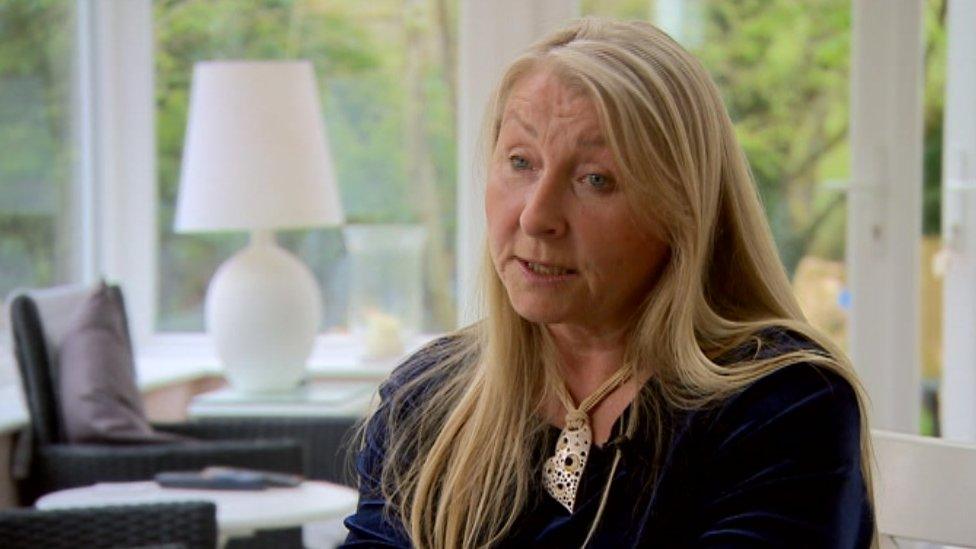Pelvic mesh victims 'fighting alone in pain'

Jemima Williams said it can be "impossible" for patients, with chronic and unbearable pain, to fight alone
- Published
Women injured by pelvic mesh implants should not have had to fight alone, campaigners have said.
It follows a call from England’s patient safety commissioner for swift action on payments to victims of two health scandals.
Jemima Williams said there was a “great need” for a similar role in Wales to make sure patients were heard.
A Welsh government spokesperson said there were no current plans for the role because it had introduced other patient safety measures.
'Nothing has changed'
Jemima Williams from Barry said she has been living with chronic pain from mesh implants for more than 20 years.
The 63-year-old had mesh inserted in 2002 after a pelvic organ prolapse.
She said she has had countless operations since and surgeons have told her it would be too dangerous to remove any more mesh.
“There are women out there who have lost everything, their homes, their marriages, their children, she said.
"These are lifelong injuries, after 22 years I am still going through it."
The grandmother said she was now registered as disabled and “suffering from intractable pain and intimate personal difficulties".
The campaigner said patients in Wales needed someone to “stand with us and help fight for us".
“The ordinary woman, going through all these injuries, suffering horrific pain, can’t get their head around fighting for redress for themselves, it is impossible,” she said.
A report, external by Dr Henrietta Hughes, England’s patient safety commissioner, recommended women injured by pelvic mesh implants and families of children left disabled by an epilepsy drug be given urgent financial help.
Dr Hughes was asked by the UK government to look into a potential compensation scheme for those injured by their implants or affected by the sodium valproate scandal.
It follows a review , externalin 2020 which found lives had been ruined because of concerns about some treatments, including pelvic mesh, were not listened to.
One of its recommendations led to the appointment of England’s patient safety commissioner, while new legislation to create one for Scotland passed unanimously by MSPs last year.

Karen Preater described having to fight "tooth and nail" to be heard
‘Nothing will change if it happens again’
Karen Preater from Denbighshire said she was “never not in pain” after having mesh put in 10 years ago.
The 47-year-old said she had written to the Welsh government to ask for a patient safety commissioner after England appointed one in 2022.
“I have had to fight for everything to be heard, I have had to fight the complaints system... no-one wants to say we messed up and we are going to put it right,” she added.
Ms Preater, who won her legal case against Betsi Cadwaladr Health Board two years ago, said a patient advocate was needed so others did not have fight “tooth and nail” like she did.
“I want to see a difference, especially with my experience going through legal system, if I didn’t have support of family and friends, I would have dropped it,” she said.
The Welsh government said it had “no current plans” to appoint a patient safety commissioner for Wales.
It said it had recently introdyced a range of patient safety measures including a new citizen voice body Llais, the Duty of Quality, the Duty of Candour and extended the powers of the Public Services Ombudsman.
The Welsh government has “great sympathy for the suffering and harm” which had occurred, the spokesperson said.
“In the event that the UK government accepts the recommendations we will of course be pursuing the best course to ensure affected people in Wales are not treated any differently,” they added.
They added the use of vaginal mesh for stress urinary incontinence and prolapse had been paused in Wales since 2018, and the advice was valproate should not be used in pregnancy here.
Related topics
- Published8 July 2020

- Published8 July 2020
